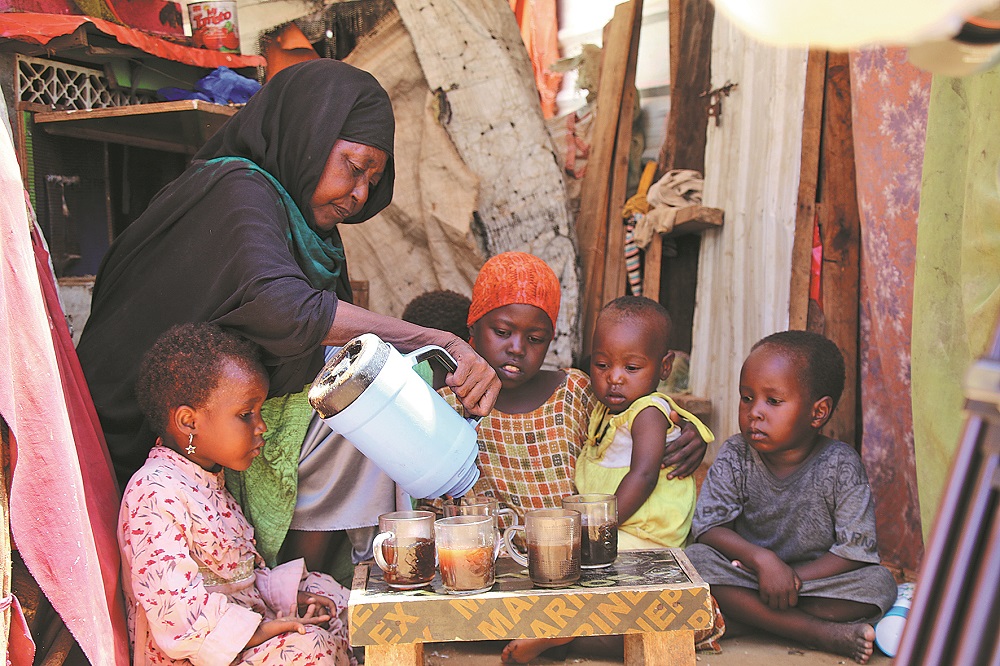
Somalis, displaced by famine, try to rebuild their lives in camps made of tins, tarps and rags in Mogadishu, on March 9. ABUUKAR MOHAMED MUHIDIN/GETTY IMAGES
The lives of 51 million children in eastern and southern Africa are at risk, with their futures often hanging by a thread, due to the ongoing challenges of unpredictable and unprecedented extreme weather patterns, a new report by the United Nations Children's Fund has found.
The report estimates that 1 in 3 children under 5 in Africa — about 64 million — is trapped in severe child food poverty, with their lives marked by inequity, conflict, and climate-induced deprivation.
This situation leaves them with a high chance of suffering from wasting, a deadly form of malnutrition that threatens their very survival.
The children's suffering is further compounded by insufficient health and nutrition support, unsafe water, poor sanitation, limited educational opportunities, and pervasive poverty.
The report said the climate crisis including El Nino and La Nina, heavy rains and flooding intensified cholera and mpox outbreaks, malnutrition and other health issues that are particularly serious for children.
Climate change has intensified drought and has led to significant food insecurity, water shortages, and heightened risks of disease outbreaks, particularly in Lesotho, Malawi, Namibia, Zambia, Zimbabwe, and Botswana. The six countries have each declared a state of emergency as they brace for an uncertain future.
In Malawi, 9 million people — including almost 5 million children — are in desperate need, as 23 out of 28 districts face a combination of erratic rains, floods, and prolonged dry spells, decimating crops.
Zambia faces a similar crisis, with a national emergency declared as drought and now floods push 6.5 million people, including 3 million children, to the brink, with rampant severe food insecurity and cholera.
In Zimbabwe, prolonged drought has crippled food and water supplies, intensifying the risk of violence and further disease amid cholera and polio outbreaks.
Combined efforts needed
"The entire region is in crisis, and children's futures depend on the combined efforts of multiple organizations, sectors and individuals, to protect, empower and take action today," the report said.
Amid an environment of extreme weather events, natural disasters, continuing conflict, political instability, and poverty, UNICEF is mainstreaming climate-smart programming.
Toward that end, the UN agency is working with and within communities to protect and empower children and young adolescents and strengthen people's resilience and adaptive abilities to climate shocks, especially those brought on by El Nino and La Nina.
"UNICEF's effort to reduce its own emissions through the use of sustainable energy alternatives forms a critical pillar in creating hope through protection, empowerment and reduction," the report said.
The threefold approach is essential in creating a critical mass of climate action that enables UNICEF to respond to the urgent humanitarian needs of children and their families, as well as address the deeper causes and impacts of El Nino, La Nina and climate change.